No Fees
Unless We Win
Millions Recovered!

Seattle Rideshare Accident Lawyer
We will get you through this.

The time following a rideshare accident is painful and confusing. Victims struggle to deal with excessive paperwork, complex insurance policies, and paltry settlement offers. You deserve a champion who will fight by your side with compassion and skill. An experienced and accessible Seattle rideshare accident lawyer from Boohoff Law, P.A., will take on auto insurance companies and the legal system to help you get the favorable outcome you deserve.
Available 24/7
Our specialists are here to listen and help for free, no strings attached.
877-999-9999
for a free consultation
Seattle Legal Services
- Seattle Personal Injury
- Seattle Car Accident
- Seattle Bus Accident
- Seattle Truck Accident
- Seattle Bicycle Accident
- Seattle Burn Injury
- Seattle Motorcycle Accident
- Seattle Drunk Driving
- Seattle Nursing Home Abuse
- Seattle Slip and Fall Accidents
- Seattle Premises Liability
- Seattle Wrongful Death
- Seattle Dangerous Drugs
- Seattle Dog Bite
- Seattle Pedestrian Accident
- Seattle Medical Malpractice
- Seattle Construction Accident
- Seattle Workers’ Compensation
Find out what your case is worth.
The Impact of a Seattle Uber and Lyft Accident
 Thanks to rideshare services like Uber and Lyft, individuals in the Seattle metropolitan area can take advantage of a new variety of transportation options. Companies like these offer those who can’t or don’t wish to drive an opportunity to secure both group and private rides with little more than a few taps on a smartphone application.
Thanks to rideshare services like Uber and Lyft, individuals in the Seattle metropolitan area can take advantage of a new variety of transportation options. Companies like these offer those who can’t or don’t wish to drive an opportunity to secure both group and private rides with little more than a few taps on a smartphone application.
Working professionals, students, and those planning a night out on the town rely on these services to help them reach their destinations safely.
But what happens when a ride with a Lyft or Uber driver goes awry? What rights do victims have, and what compensation can they pursue if they’re involved in a rideshare accident?
Many victims battle conflicting information in the days following their accidents. Drivers fearing legal penalties and not-so-transparent ride-sharing representatives may further complicate the process.
Boohoff Law: Your Seattle Uber Accident Lawyers
 An experienced Seattle car accident lawyer can help guide you through the process of protecting your legal rights. Many people rely on these services when they feel they cannot or should not drive themselves.
An experienced Seattle car accident lawyer can help guide you through the process of protecting your legal rights. Many people rely on these services when they feel they cannot or should not drive themselves.
Whether we are trying to avoid frustrating traffic or we’re unable to drive after a few drinks, it’s not uncommon for us to turn to ridesharing as an active effort to avoid accidents. When a crash occurs, it can be a terrifying and wholly unexpected experience.
The time following a rideshare accident is often riddled with confusion. Many injured victims find that they struggle to contend with complicated and excessive paperwork following their crash, and many more receive paltry settlement offers that scarcely cover medical bills and fail to account for the extent of their suffering caused by the crash.
Rideshare companies like Uber and Lyft have complex insurance policies. Most passengers are unaware of the policies and guidelines outlined for rideshare drivers, but understanding the factors that might come into play in a personal injury claim following an accident can be helpful.
Our Commitment to You
Countless rideshare accident victims are partnered with unreliable, careless, or unmotivated attorneys. If you or a loved one have been involved in a rideshare accident, you deserve to work with a knowledgeable and empathetic legal professional.
Victims injured by a rideshare driver’s negligence should seek legal advice from a reputable attorney with a deep understanding of Washington law.
At Boohoff Law, we take focused steps to ensure that accident victims receive the compensation and assistance they deserve.
Our skilled legal team works tirelessly to aid in our clients’ pursuit of legal recourse after they are involved in a rideshare accident. We rely on:
- Meticulous investigation to turn up as much evidence to benefit your case as possible.
- Comprehensive preparation to ensure that both our team and our clients are well-prepared and informed before beginning the legal process.
- Extensive personal service to help us build meaningful relationships and help clients feel at ease.
- A retained team of litigation and medical paralegals to help our clients fight for their rights with specialized knowledge and assistance.
Contact an experienced Seattle car accident lawyer at Boohoff Law today for a free consultation.
Rideshare Accident Injuries
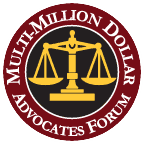 Even a minor Uber-Lyft accident has the potential to cause serious injuries, but some crashes lead to catastrophic damage and bodily harm.
Even a minor Uber-Lyft accident has the potential to cause serious injuries, but some crashes lead to catastrophic damage and bodily harm.
Depending on the circumstances and the severity of the crash, victims may experience:
- Whiplash;
- Scrapes, cuts, and lesions;
- Head and neck injuries;
- Brain injuries;
- Back injuries;
- Chest injuries;
- Concussions;
- Spinal cord and nerve damage;
- Paralysis;
- Herniated discs;
- Vocal cord paralysis
- Ligament damage
An experienced medical professional must evaluate all of the injuries you sustain in a rideshare accident. Even if you don’t exhibit any negative symptoms after a rideshare accident, it’s best to visit a doctor to ensure your safety and well-being.
Doctors may be able to pinpoint injuries that have been dormant for a period of time or that haven’t worsened to the degree that they’re noticeable yet.
Potential Causes of Rideshare Accidents
A rideshare accident may be caused by the Uber or Lyft driver, but could also be the fault of other drivers on the road. Your driver or those in the vehicles around you may:
- Be inattentive or distracted while driving;
- Make improper turns or execute other improper maneuvers;
- Park illegally;
- Drive while intoxicated;
- Exhibit signs of road rage or aggressive driving; and/or
- Have to grapple with dangerous road or weather conditions.
Distracted driving, in particular, tends to be a common issue for rideshare drivers. These drivers rely on the rideshare company’s application to view GPS maps and receive driving directions. Paying too much attention to maps, getting distracted or confused by directions, and other similar issues can all greatly increase the risk of a crash.
Insurance Coverage for Uber and Lyft Accidents
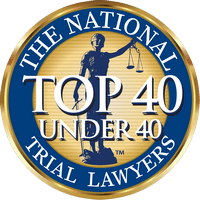
Uber and Lyft provide insurance coverage for their drivers, but the level of coverage varies depending on the phase of the ride:
- Waiting for a Ride Request: When a driver is logged into the app but hasn’t yet accepted a ride, limited coverage applies. This typically includes liability coverage of up to $50,000 per person injured, $100,000 per accident, and $25,000 for property damage. However, this coverage only kicks in if the driver’s personal insurance doesn’t apply.
- En Route to Pick Up a Passenger: Once a driver accepts a ride request, Uber and Lyft provide significantly higher coverage. This includes $1 million in liability coverage, as well as contingent collision and comprehensive coverage—provided the driver has their own collision coverage.
- During a Ride with a Passenger: While a passenger is in the vehicle, drivers are covered by up to $1 million in liability insurance. This also includes uninsured/underinsured motorist protection when applicable, as well as collision and comprehensive coverage, subject to the driver’s personal collision insurance.
Understanding these distinctions can help determine who is responsible for compensation after an accident. If you or a loved one were injured in a rideshare-related accident, an experienced attorney can guide you through the claims process to protect your rights.
What Damages Can I Recover After a Seattle Rideshare Accident?
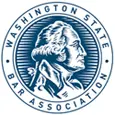 If you’re involved in a rideshare accident in Seattle, you may be eligible to recover various damages. The specific damages you can seek depend on factors such as the extent of your injuries, property damage, and the circumstances of the accident. Here are common types of damages you may be able to recover:
If you’re involved in a rideshare accident in Seattle, you may be eligible to recover various damages. The specific damages you can seek depend on factors such as the extent of your injuries, property damage, and the circumstances of the accident. Here are common types of damages you may be able to recover:
- Medical Expenses: You can seek compensation for all medical expenses related to the accident, including ambulance fees, hospital stays, surgeries, medications, rehabilitation, and future medical costs.
- Lost Wages: If the accident results in missed work or a diminished ability to work, you may be entitled to compensation for lost wages. This includes both current and future income that you may lose due to the injuries sustained.
- Property Damage: Compensation for damage to your vehicle or other property is typically covered. This may include repair or replacement costs.
- Pain and Suffering: Non-economic damages such as pain, suffering, and emotional distress may also be recoverable. These damages are more subjective and often depend on the severity and impact of your injuries.
- Loss of Consortium: In some cases, the spouse or family members of the injured party may be able to seek compensation for the loss of companionship or support resulting from the injuries.
- Punitive Damages: In cases of extreme negligence or intentional misconduct by the rideshare driver, punitive damages may be awarded. These are designed to punish the wrongdoer and discourage similar behavior in the future.
- Wrongful Death Damages: If a loved one dies as a result of a rideshare accident, certain surviving family members may be entitled to compensation for funeral expenses, loss of financial support, and the emotional impact of the loss.
To pursue these damages, it’s crucial to gather evidence, including medical records, accident reports, witness statements, and any available documentation related to your losses. Working with an experienced Uber or Lyft accident attorney in Seattle can help you navigate the legal process and maximize your chances of receiving fair compensation.
Seattle Rideshare Accident Attorney
Boohoff Law Seattle Office
920 5th Ave, Suite 1530
Seattle, WA 98104
Free Consultation
We Are Here For You 24/7
Ridesharing FAQ
Are rideshare drivers employees of ridesharing companies in Seattle?
In general, rideshare companies try to say that they do not employ rideshare drivers. These drivers are independent contractors (also known as 1099 self-employed workers) with their own personal vehicles and not the rideshare company’s employees. This designation applies even though most of these companies collect, reduce, and distribute driver payments, a traditional red flag when disclaiming employee status.
Courts distinguish between independent contractors and employees. Employers generally bear full financial responsibility for torts, such as driver negligence, committed by those working in their employment.
However, companies are not responsible for the torts committed by independent contractors working for them. Independent contractor status typically eliminates the company’s liability for car accidents. A rideshare accident lawyer may demand evidence of each statutory factor during car accident litigation.
If Lyft or Uber failed to adhere to all of the conditions listed above, the TNC might be vicariously liable for a rideshare accident.
Can I hold a Seattle rideshare company accountable if a driver assaulted or stole from me?
Possibly. Liability depends on what the rideshare company should have known or knew about the driver. In such cases, personal injury lawyers may run a criminal background check to determine if the driver has a relevant criminal history.
If so, a rideshare company may be directly liable for negligently contracting with the driver, even if his or her crimes were not “disqualifying” offenses under the law.
Liability might also stick if previous clients complained about related behavior from the driver, but the rideshare company did not take action.
If my rideshare was involved in a multi-car crash, who pays for my injuries?
Each rideshare driver must carry personal injury insurance (no-fault) coverage. Regardless of fault, this coverage typically pays for injured occupants’ immediate medical expenses and lost wages.
Victims of Uber and Lyft accidents with minor injuries might only need no-fault coverage. Anyone with a serious injury under Seattle tort law might claim damages from a person or entity that negligently caused or contributed to the injuries.
Liable parties may include a driver who rear-ends your rideshare, a rideshare driver who stops short, or a pedestrian who unlawfully cuts into the road. Insurance adjusters or juries typically review the facts and apportion liability accordingly.
Sometimes, a rideshare company’s policy covers any initial minor injury or property claims and then seeks indemnification from another liable insurer. Schedule an insurance claims analysis today with a Seattle rideshare accident lawyer at Boohoff Law.
How Long Do I Have to File a Rideshare Accident Lawsuit in Seattle?
In Washington State, you typically have three years from the date of your accident to file a personal injury lawsuit in civil court. If you don’t have an Uber or Lyft accident lawyer file suit on your behalf within that time, you will likely lose all rights to pursue compensation.
It’s vital you contact an experienced Seattle rideshare accident lawyer as soon as possible to ensure you don’t miss out on any important deadlines that could prevent you from recovering the compensation you need.
Partner With Boohoff Law’s Seattle Rideshare Accident Attorneys
Rideshare services have become immensely popular in recent years. With Uber pulling in over eleven billion dollars worth of revenue worldwide annually, there’s no question that more and more individuals are turning to these services for their transportation needs.

Most passengers, however, are unaware of their rights or the steps they should take if they are involved in an Uber or Lyft accident while utilizing one of these services.
That’s why the team at Boohoff Law is dedicated to educating and guiding our clients through the time after a rideshare accident.
Our skilled team of Seattle Uber accident lawyers works closely with accident victims to determine the damages and losses they’ve sustained, which the attorneys use to help them collect the compensation they rightfully deserve.
If you’re interested in seeking the advice of a compassionate and talented Seattle personal injury lawyer from Boohoff Law, please don’t hesitate to call us at (877) 999-9999 or contact us today for a free legal consultation.
Boohoff Law, P.A. – Auto Accident Lawyers – Seattle Office
920 5th Ave, Suite 1530
Seattle, WA 98104
Phone:(206) 451-1111
Our process.
-
1. Understanding your optionsFrom your first call, our team takes the time to listen and learn your unique situation. We’ll walk you through the factors that will increase the value of your claim and help you mitigate risks. Above all, we help you envision a personalized path forward.
-
2. Connecting with your attorneyYou will know within 1-2 days if our team can help. Your personal attorney and legal team will guide you through what to expect, ensuring you’re always informed about what’s going on. You will stay in control as an included member of the team working on your case.
-
3. Supporting documentationOur diligent legal team will work with you to make sure all the necessary documentation is complete. This includes insurance policy details, medical records, medical and repair bills, and lost wages.
-
4. Formulating a winning plan
We’ll assess your case every detail, every angle as we fight for the outcome you deserve. We roll up our sleeves and bring an unrelenting commitment and proven track record to formulate a winning game plan, keeping you clearly informed along the way.
-
5. Negotiation and litigationWe are relentless in pursuing what’s right. We work with toughness and resilience as we negotiate directly with the defense to obtain the compensation you deserve. In cases that demand a court trial, our attorneys are expert personal injury litigators with the talent to maximize policy volumes and outcomes.
Recovery is personal.
We’re here for you.
We’re close by. And if you can’t make it to us, we’ll meet you where you need us, at home or in the hospital.
You're better off with Boohoff.
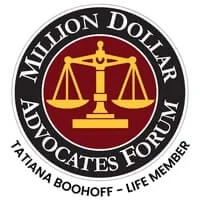

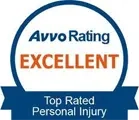
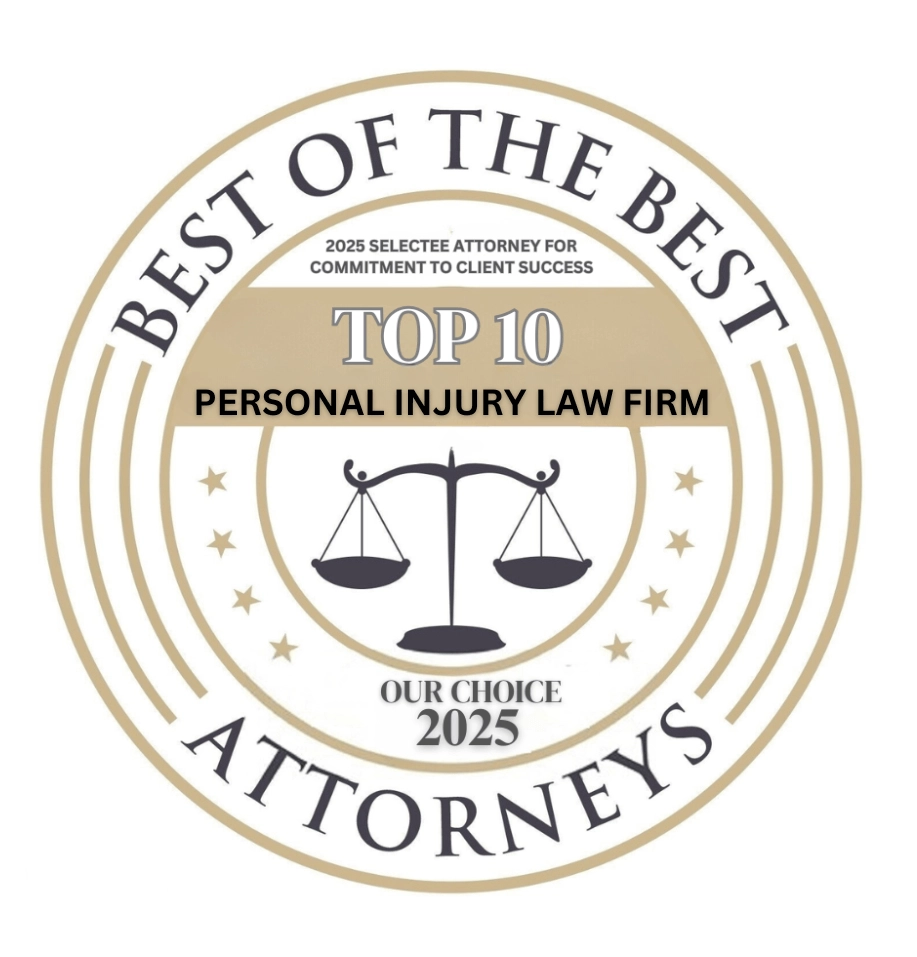
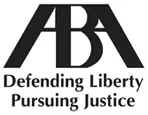
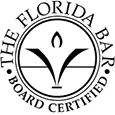
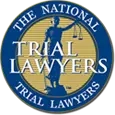
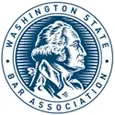



The information on this website is for general information purposes only. Nothing on this site should be taken as legal advice for any individual case or situation. This information is not intended to create, and receipt or viewing does not constitute, an attorney-client relationship.
available 24/7
(877) 999-9999
